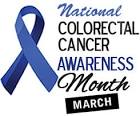
According the American Cancer Society, it is expected that about 135,430 new cases of colorectal cancer will be diagnosed in the year 2017. Over the past years the number of new cases of colorectal cancer has decreased. However, there is a new study that has found that there has been a rise in the diagnosis of colon and rectal cancer in young adults.
Typically, screening for colorectal cancer begins at age 50. This leaves out the younger population. However given this new study’s findings, it is imperative for people of ALL ages to be aware of how to prevent and how to monitor for symptoms of colon and rectal cancer. Here are some tips.
Prevention
- Avoid processed foods and limit your alcohol intake. Increase the amount of vegetables, fruits and whole grains in your diet while eating less red meat and processed foods.
- Exercise for 30-60 minutes for five days of the week.
- Maintain a healthy weight. This will come easy if you eat well and exercise.
- If you smoke you should quit. On the same note, don’t start smoking.
Signs and Symptoms
- Change in bowel habits such as diarrhea or constipation that is not related to a change in diet.
- Bleeding from your rectum or blood in your stool, either bright red or dark and tarry.
- Stomach pain.
- Feeling weak and tired when you should not.
- Weight loss without trying.
During the month of March let’s spread the word about how to prevent colorectal cancer and what changes in the body could be telling us that we need to be seen by a medical provider. If you have already been diagnosed with colon or rectal cancer and are looking for more information OncoLink has the information you need.